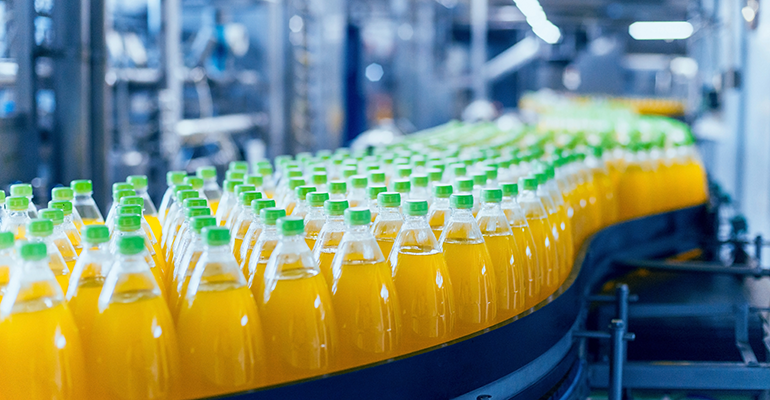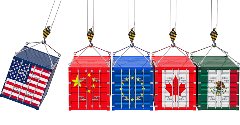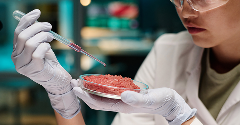News
Unilever ups investment in more efficient logistics to make retailer interaction simpler
8 Oct 2024Unilever says that the rollout of its new ‘direct dispatch’ logistical model to ship products from factories to retail customers has demonstrated significant improvements across several operational efficiencies.
Targeting its end-to-end supply chain, the company says that the new system helps to cut travel time and distance, while reducing touchpoints, improving the carbon footprint, and providing an enhanced and speedier service for its retail customers.

The company says that the rollout—currently underway in Europe, Northern Asia, Indonesia, and Southeast Asia—is just beginning and will be significantly expanded worldwide over the next few years.
Although direct dispatch is not entirely new to Unilever, evidence of its advantages has led to a wider rollout. In 2018 an estimated 8% of its deliveries relied on direct dispatch, with current estimates at 16%, and the projected uptake forecast to hit over 25% by 2026.
Direct dispatch meant a complete redesign of the old dispatch system
The conventional logistics system used by Unilever shifts products onto pallets via a distribution centre. This entails loading and unloading, as well as organising and storing before the products are then shipped to retailers. This invariably results in using a wide mix of products across different categories that meet retailers’ exact needs.
However, Unilever’s logistic team realised that several product categories are better suited to direct dispatch, distributing straight from the factory to the retailer. The benefits are numerous, including savings in fuel and energy to cut carbon emissions, with the added bonus of reduced delivery time, giving perishable products a longer retail shelf-life.
“Direct dispatch is a way for us to increase efficiencies in our end-to-end supply chain and help deliver on the cost savings and sustainability aspects of our Growth Action Plan,” said Michael O’Connor, home care global supply chain strategy & long-term planning manager, at Unilever.
The model is best suited to larger retailers and bulkier products
Unilever says the viability of the direct dispatch depends on sending full shipments of just one or two product lines from the factory to larger-scale retailer outlets. Equally, it is best suited to bulkier items, which means retailers could order one batch of boxed cereal in just one delivery truck, in turn filling the stock and store shelves rapidly and efficiently.
The sustainability benefits are mainly focused on energy savings, with truck fuel being amongst the biggest savings. All of this contributes to a significant reduction in greenhouse gas emissions and the overall carbon footprint of Unilever's supply chain.
“This is about finding what works best for each customer and tailoring the solution accordingly, whether it’s direct dispatch or a traditional model,” said O’Connor. “We’re constantly evaluating more sites and routes all over the world and, where it makes sense, implementing at speed. Each one we add to the list is another step in our logistics operation becoming more efficient, productive, and sustainable.”
Unilever has streamlined the business to enhance its logistical operations
Unilever’s June 2023 Supply Chain Report highlights the huge extent of the multinational supply chain, which is estimated to include around 52,000 suppliers and extends to a total investment of €43.2 billion. Of that total spend, 7% is attributed to logistics and operational costs, the equivalent of just over €3 billion.
In recent years the company has implemented several initiatives to help boost efficiency and make its processes more eco-friendly. Many of those improvements have come about from digital innovations and processes with these goals in mind.
The biggest changes have included the move away from a matrix operation to make the logistical processes more streamlined. This move saw the company split into better-defined business groups that include Beauty & Wellbeing, Personal Care, Home Care, Nutrition, and Ice Cream.
The shakeup also saw the company’s supply chain and IT divisions united under Unilever Business Operations, to support logistics on a global scale while also enhancing operational efficiencies.
Related news

Future F&B flavours favour exploration and explosive taste profiles
25 Mar 2025
Exploration and experimentation will define the future of flavour, according to Mintel, as consumers seek out taste profiles and textures that offer an adventurous eating experience.
Read more
Partnership plans to scale cultivated meat production
21 Mar 2025
Food technology innovator Ever After Foods (EAF) and multinational food leader Bühler are striving to overcome hurdles to access and accelerate the development of cultivated meat.
Read more
Global consumers enjoy food less and perceive it as less healthy
20 Mar 2025
Enjoyment of food and its perceived healthiness is dwindling among most global populations, according to findings from Gallup and Ando Foundation/Nissin Food Products.
Read more
Seafood set to ‘dethrone’ poultry as protein growth king
19 Mar 2025
Seafood is poised to surpass poultry as the leading contributor to global protein supply growth this year, according to Rabobank’s latest protein outlook.
Read more
Tariff volatility leaves food manufacturers in limbo
11 Mar 2025
Rapid US trade policy shifts and tariff escalations are creating uncertainty for food manufacturers and ingredient suppliers.
Read more
F&B industry hit with fresh greenwashing claims
26 Feb 2025
The food and beverage (F&B) industry is under fresh scrutiny amid claims of greenwashing, with Arla the latest company in the firing line.
Read more
Protein diversification: A massive missed market?
20 Feb 2025
Germany and the UK could be missing out on the massive market for alternative meats and proteins, with one new coalition calling for an end to the “steak-tofu struggle”.
Read more
Have scientists discovered a new tool to measure UPFs?
19 Feb 2025
Researchers have developed a new scoring system and database, compiling over 50,000 food items, of which over 1,000 are classified as ultra-processed.
Read more
China ramps up cultivated meat research with new innovation base
18 Feb 2025
China has opened its first fermentation and cultivated meat research centre in Beijing.
Read more
Most consumers lack trust in AI, but supplement users are ready to embrace the technology
14 Feb 2025
A survey of UK and US consumers found that most supplement users are willing to let AI make decisions on their behalf, but they also demand greater transparency.
Read more